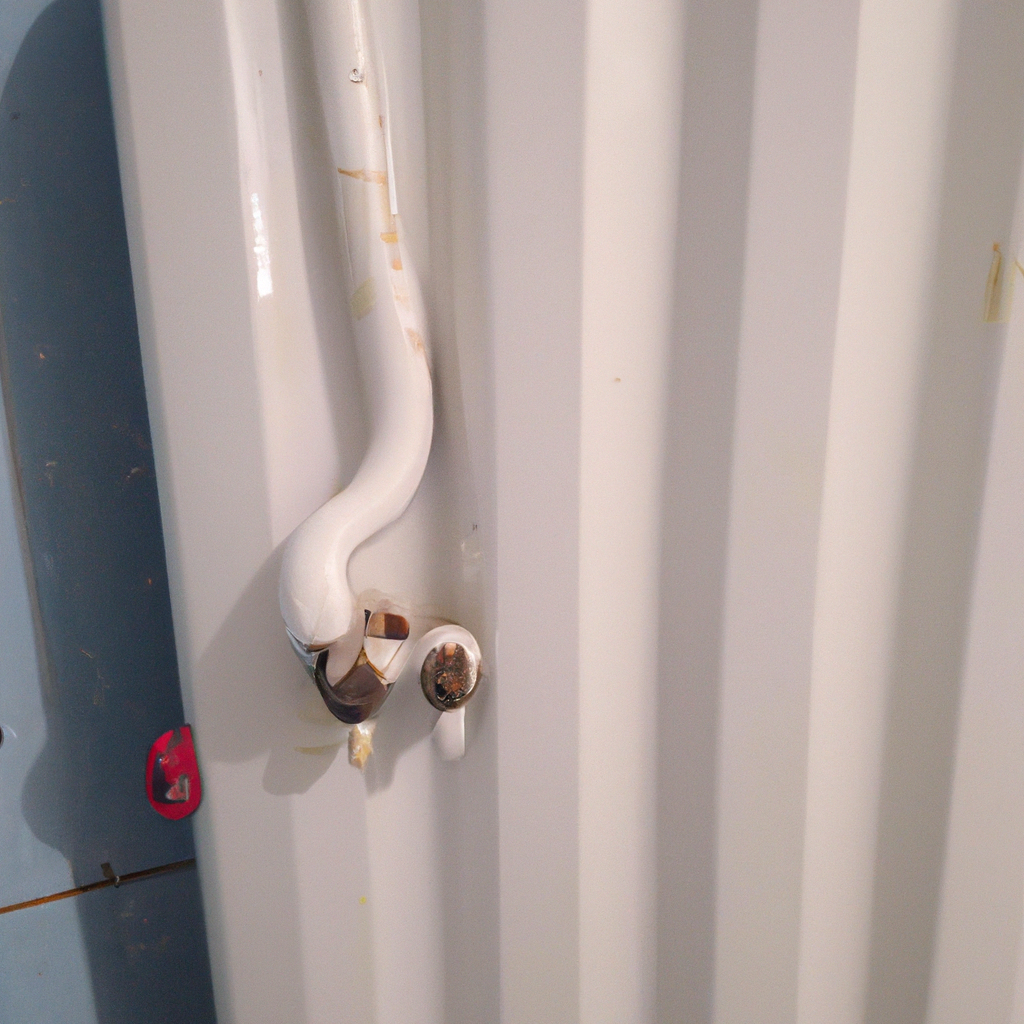When it comes to home maintenance, a broken water heater can be one of the most frustrating and expensive problems to deal with.
If your water heater breaks, it is important to turn off the power and water supply to the heater, and then contact a professional plumber to assess the situation and provide repairs or replacement as needed.
Homeowners often find themselves in a quandary when their water heater stops working properly – should they try to repair it themselves or hire a professional?
This article will provide a brief overview of what to do if your water heater breaks, helping homeowners make an informed decision.
The first step is to diagnose the problem. A thorough assessment of the condition of the water heater and its components should be conducted before any further action is taken.
Areas that should be examined include the thermostat, heating element, pilot light, gas supply line, and pressure relief valve. If any of these components are damaged or malfunctioning, then attempting repairs may not be possible without specialized tools and knowledge.
Finally, if all other options have been exhausted and the water heater still does not work properly, then it may be wise for homeowners to contact a professional HVAC engineer for assistance. An experienced HVAC engineer can quickly identify the source of the issue and provide a comprehensive solution that is tailored to the individual needs of each homeowner.
Causes Of Water Heater Malfunction
A broken water heater can feel like a thunderstorm of frustration.
It is important to understand the causes behind water heater malfunctions in order to determine appropriate next steps.
Common causes of water heater problems include faulty wiring, disruption of the gas supply, an overloaded circuit breaker, or an accumulation of sediment inside the tank.
Issues with pressure relief valves and thermostats may also be responsible for water heater breakdowns.
Corrosion of the heating elements is another common issue that can lead to a faulty water heater.

In addition to these issues, certain environmental factors can contribute to malfunctioning water heaters.
Cold weather can cause pipes to freeze and expand causing damage to the machine’s components while hard water can accumulate sediment in the tank leading to decreased efficiency and increased risk of failure.
Understanding what has caused a broken water heater is essential when assessing the damage and determining next steps.
Assessing The Damage
When a water heater breaks, it is important to assess the damage and determine the cause of failure. To do this, an HVAC engineer should first check for any signs of malfunction or operational issues.
This includes inspecting the water heater’s components and connections to ensure they are not loose or damaged. Once it has been determined that all of the parts are functioning properly, the engineer can analyze the failure to determine its cause.
By assessing the damage and analyzing the failure, an HVAC engineer can then work towards finding appropriate repair options.
Repair Options
When the dreaded sound of a broken water heater echoes through your home, it can be a daunting task to figure out what steps to take next. But with proper guidance and research, you can determine the best course of action for your home’s unique situation.
Here are some repair options to consider when your water heater breaks:
- Replacing parts: If the issue is isolated to one part of the water heater, it might make sense to fix it by replacing any broken or worn-out parts. Common problems that require this type of repair include faulty thermostats, heating elements, and valves.
- Resetting the system: In many cases, resetting the water heater’s system can help restore normal operation and alleviate common issues such as too little hot water or no hot water at all.
- Flushing out sediment: Sediment build-up in a tank-style unit can cause poor performance and eventually lead to catastrophic failure. By flushing out the sediment on an annual basis, you can keep your system running efficiently for years to come.
- Water heater replacement: When repairs become too costly or if the unit is beyond its useful life span (typically 10-15 years), replacing your water heater with a new model may be necessary.
No matter which option you choose, it’s important to understand that certain repairs should only be performed by certified professionals due to their complexity and potential liability. When considering when to seek professional help for a broken water heater, always err on the side of caution for added peace of mind.
When To Seek Professional Help
It is important to determine when professional help is needed to repair a water heater.
If an individual attempts to fix the water heater themselves and the problem persists, it is best to seek professional assistance.
Hiring a qualified plumber or a contractor that specializes in water heater repair can be beneficial.
A professional may provide accurate diagnosis of the issue, as well as recommend appropriate measures for repair.
When hiring a plumber, it is important to inquire about their qualifications and services offered, as well as obtain references from previous customers. Additionally, cost should also be considered when seeking professional plumbing services.
The total cost may vary depending on the type of repair needed and whether parts need to be replaced or components serviced.
Overall, professional help should be sought if an individual experiences difficulty in resolving the water heater issue themselves after conducting basic troubleshooting procedures such as checking for leaks or ensuring proper ventilation.
A qualified technician can then assess the problem and provide necessary repairs at an agreeable cost.
Conclusion
Conclusion
Water heaters are a crucial part of many households, and when they malfunction it can be a frustrating experience. Fortunately, there are several steps that one can take to assess the damage and determine the best course of action.
With simple problems, one may opt to repair their water heater themselves. However, with more serious issues, it is important to seek professional help in order to prevent further damage.
Symbolically speaking, a water heater is like a life-source for many people – providing warmth and comfort during cold winter months. As such, it is important to take all necessary precautions in order to ensure it remains functioning properly.
By following the steps outlined above one can make sure they don’t get caught in a cold shower!




